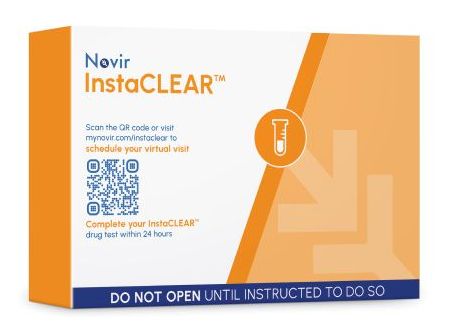The answer depends on whether the random drug testing program follows DOT regulations or is a non-DOT program. DOT has specific requirements.
DOT Random Drug Testing
In a DOT regulated random testing program, all random tests are supposed to be conducted in the period when the selections were made. An employee selected, for example, in the first quarter of the year, must be tested by March 31. The selection period for a DOT random drug testing program is typically quarterly or monthly. The only exception is if a selected employee is out on extended leave through the end of the selection period, and it this case either an alternate is selected or additional test is selected in the next selection period.
For FMCSA, 49 CFR Part 382 Section 302.305 states:
(3) Each driver selected for testing shall be testing during the selection period.
DOT Best Practices documents state:
What happens if a selected employee is not available for testing?
Employers need to have policies in place about what to do when employees are unavailable for testing.
Best Practices:
- If an employee is unavailable during the selection cycle due to an extended absence or long-term illness, document the reason. To meet the required testing rate, select another employee or add an extra selection in the next cycle.
- If an employee is selected but does not receive notice because it is their day off, test them during their next shift within the same selection cycle.
- No employee should miss testing due to operational difficulties. Check industry-specific regulations and interpretations for valid exceptions.
- Once an employee is notified to report for testing but the test does not occur, the opportunity for random testing is lost. There is no second chance.
Example: A donor arrives at a collection site for a random drug and alcohol test. If the breath alcohol testing device is out of service or the site is closed, testing cannot proceed. If no alternative site is available before the end of the day, the test is incomplete. The employer or C/TPA must select an alternate employee for testing before the selection period ends.
Employers should take care to make sure they understand collection site hours before sending employees for random tests
Many sites also stop performing urine drug screens an hour or more before the close of business.
Non Regulated Random Drug Testing
For non-DOT random drug testing programs, there is no regulatory authority. It is up to the employer to ensure that the random drug and alcohol testing is fair and consistent. When employees are selected and not tested, the program is not random, not fair and not consistent. This creates exposure to liability.
In any lawsuit regarding the employer drug testing program, if the random testing program has not been managed with fairness and consistency, this can cause significant problems for the employer. It is recommended that employers take a serious look at random drug testing programs and operate those program appropriately with professionalism, fairness and consistency; thus avoiding significant exposure to liability.
This applies not only to making sure standards for testing are documented and consistent, but also consequences for failed or refused tests.


